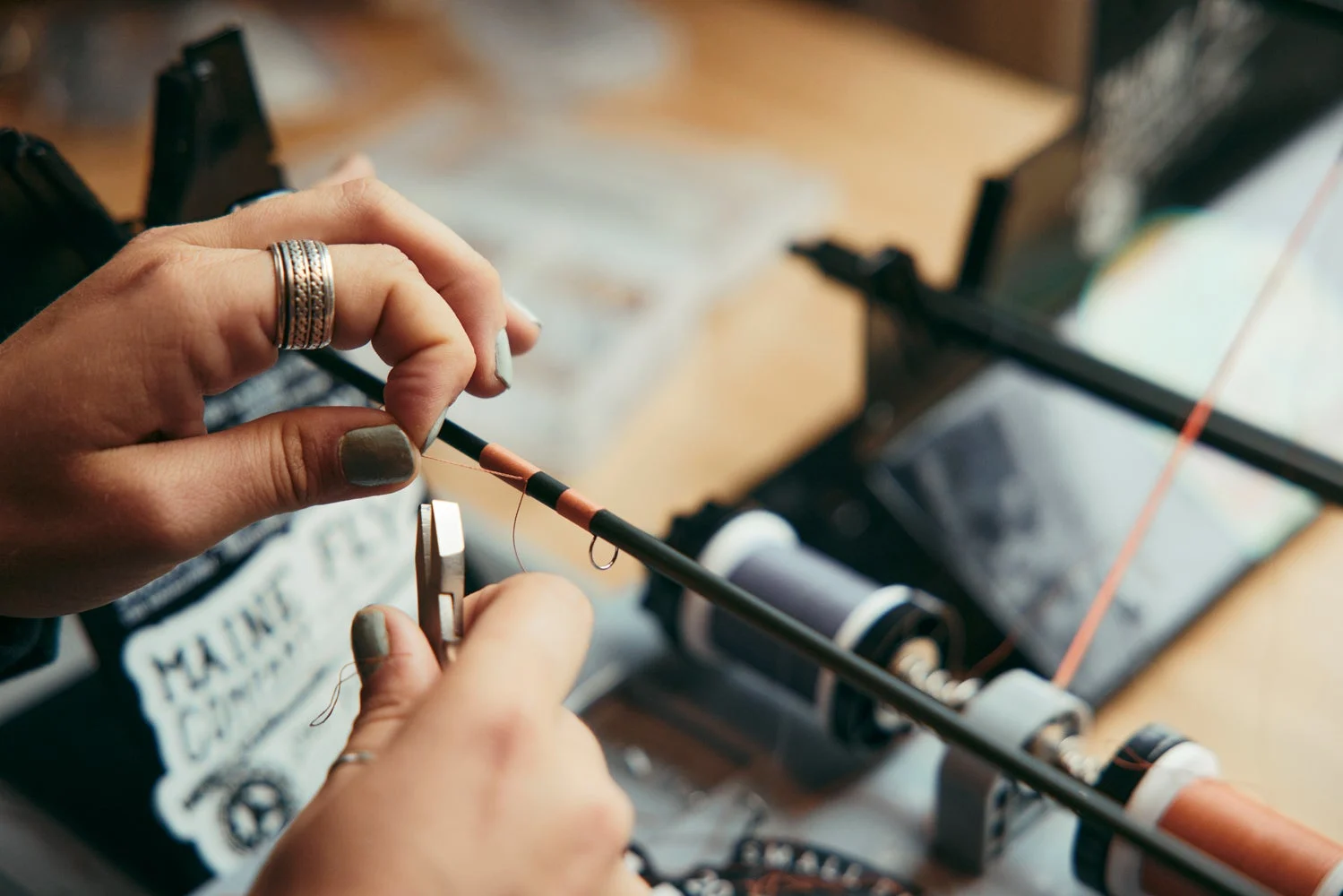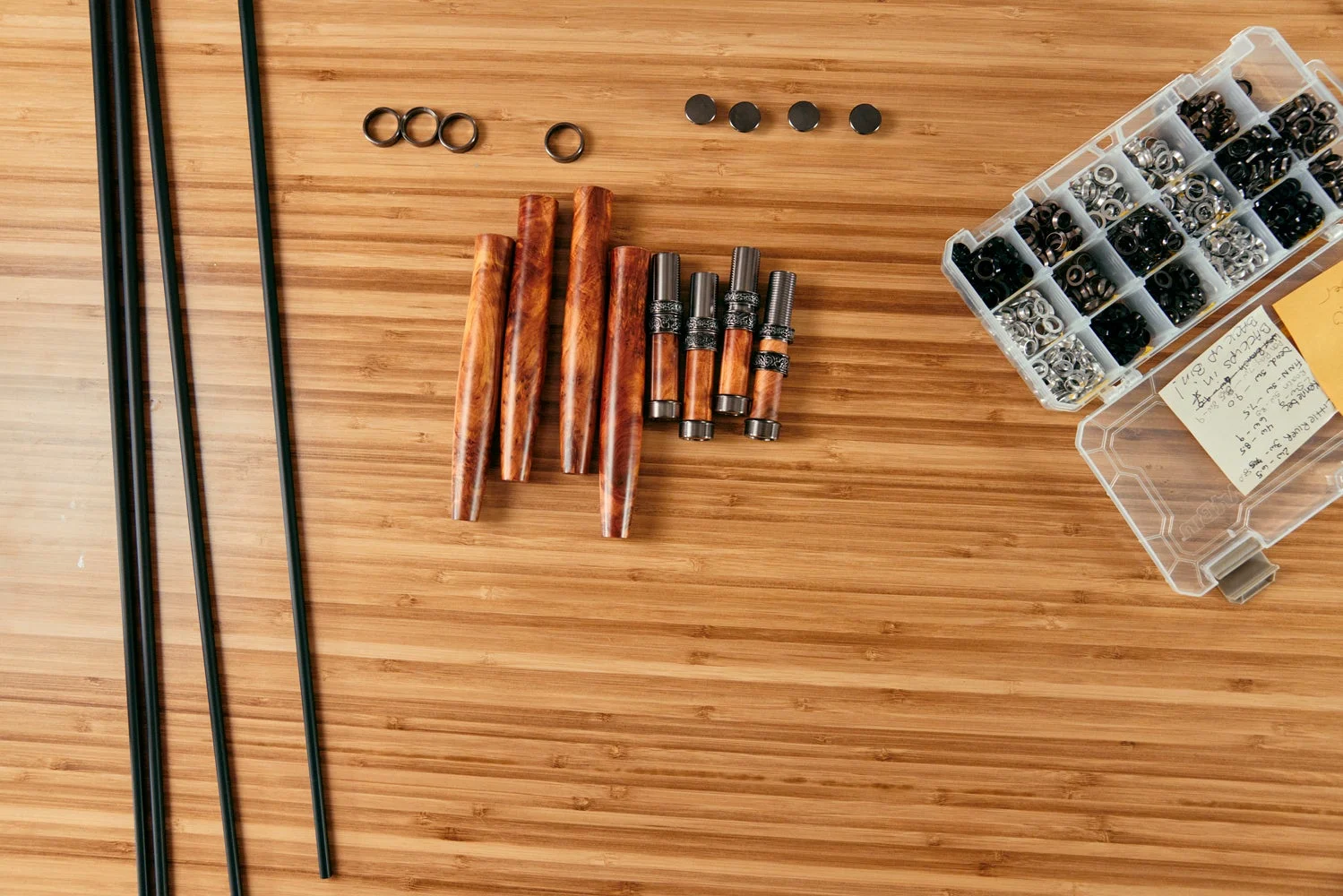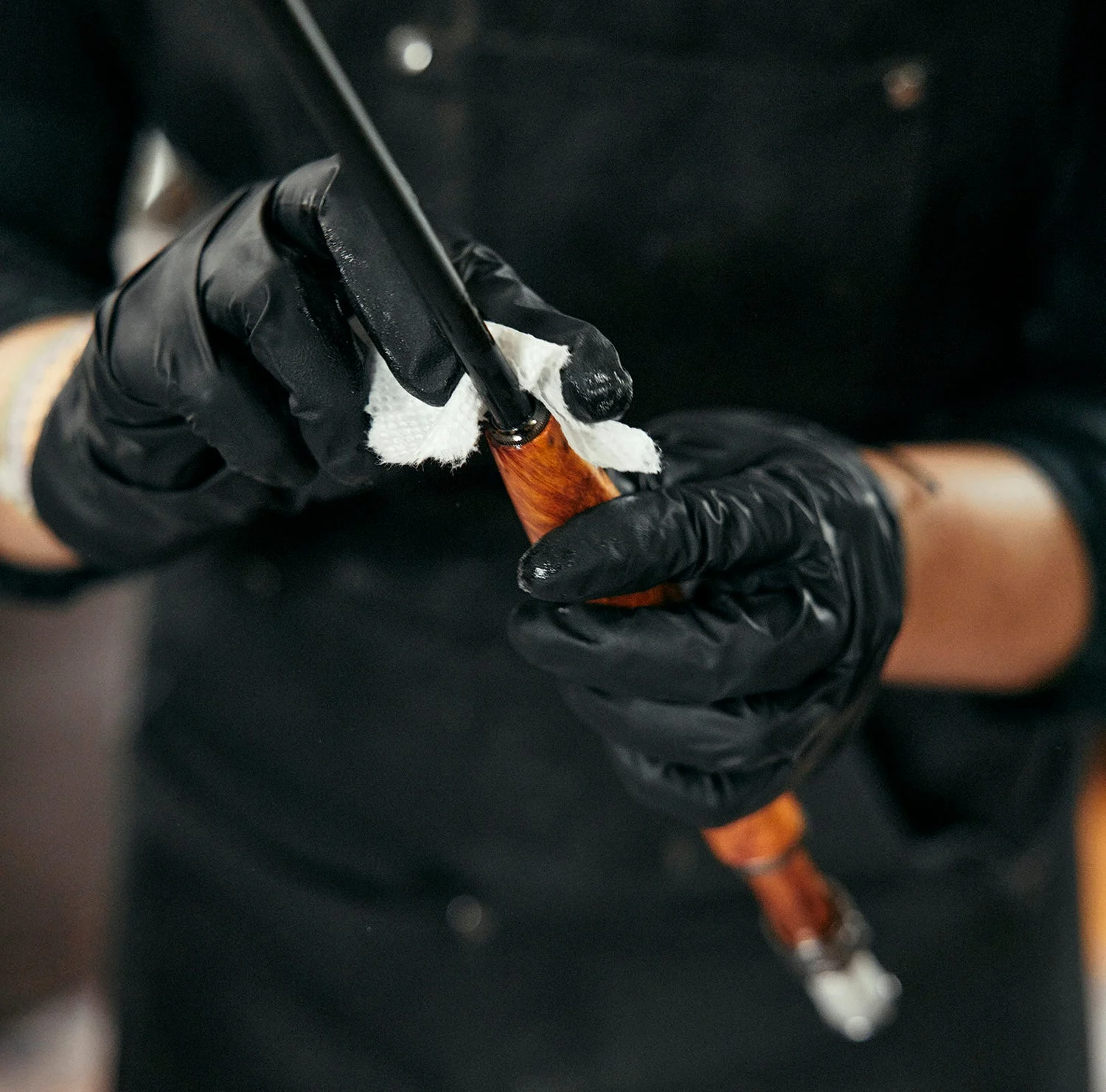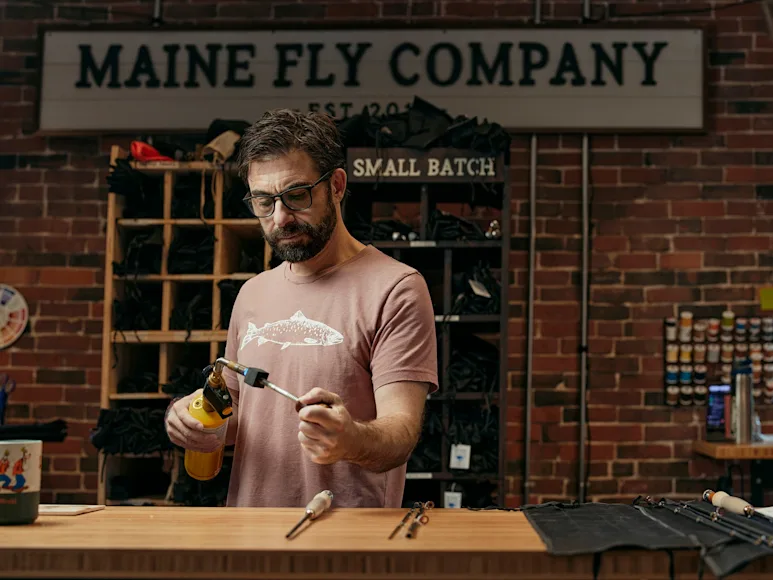_We may earn revenue from the products available on this page and participate in affiliate programs. Learn more ›
_
BACK IN MAY, I drove to Yarmouth, Maine, to visit the Maine Fly Co
. I was there to pick up a custom fly rod they’d made for me and to go fishing with owner and founder Jeff Davis. I expected to find a warehouse with heavy machinery and assembly lines, but instead I found Davis’ small workshop in an old brick building overlooking the Royal River.
Over the past two years, Maine Fly Co. has grown from a one-man show in Davis’ barn to a workshop with four employees filling orders from all over the country. But Davis has managed to hold onto what made the rods he builds special in the first place and his company’s deep connection to the Pine Tree State.
Many of the rods in Maine Fly Co.’s off-the-shelf signature series are inspired by and named after fisheries in Maine. Davis also offers limited-edition rods like the Magalloway—a tribute to one of the most famous rivers in the state—and custom rods with options for specific blanks, wrap colors, reel seats, and handles. All Maine Fly Co. rods are made by hand, one and a time, and cost a fraction of the price of the competition.
Davis and his team spend their free time chasing landlocked salmon and brook trout—two classic Maine species that inspire the wrap colors, design, and intended purpose of many of Davis’ rods. But no matter what you’re fishing for, the craftsmanship behind a Maine Fly Co. rod comes through on every cast.

Jeff Davis puts the final touches on a custom rod in his shop while two rod builders wrap threads at the building stations. This small shop will open to the public on October 27, 2022.

Rod builder Loren Soucie wraps the guides on a Maine Fly Co. signature series rod. Wrapping guides is one of the first steps in the rod-building process.

Soucie makes the final pull-through on a wrap for a Little River 3-weight rod.

Wrapping the guides with thread holds them in place before the epoxy is applied. The color of the thread and design behind this Little River 3-weight was inspired by brook trout and the small streams anglers find them in.

Rod builder LeeAnne Conway applies coats of epoxy finish to the wraps of the Little River 3-weight. The epoxy seals and secures the wraps to the rod.

Conway sits at the table in the “clean room” as she puts on the final coats of epoxy and turns the rod so it dries evenly. This small room allows for better temperature control and fewer outside elements, making it an ideal space to apply finish to wraps.

A rod blank lies next to burl wood handles and reel seats for a Magalloway limited-edition rod. A container of winding checks, which serve as the transition from the rod to the handle, sits in a small box to the right.

Conway polishes the handle and winding check on a Magalloway limited edition rod. This rod was inspired by the famous Magalloway river in western Maine, which supports strong populations of brook trout and landlocked salmon.

Davis uses a metallic pen to write the inscription on a custom rod—one of the final steps of the rod-building process. Customers can request to have their name or a phrase written on the rod.

One of the rod-building stations that overlooks the Royal River. Davis set out to find a workspace close to the water when he was looking to expand Maine Fly Co.

Davis brands the author’s custom 9-foot, 4-weight fly rod. This serves as a seal of approval and proof the rod was inspected before delivery.

The rod’s length and weight and the author’s last name inscribed on his custom rod right above the handle.

The author, Davis, and Dan Masselli wade the Magalloway looking for brook trout and landlocked salmon. The winding rivers, native fish, and tall pines throughout the Northwoods serve as inspiration for many Maine Fly Co. rods.
___Read more F
stories.___






